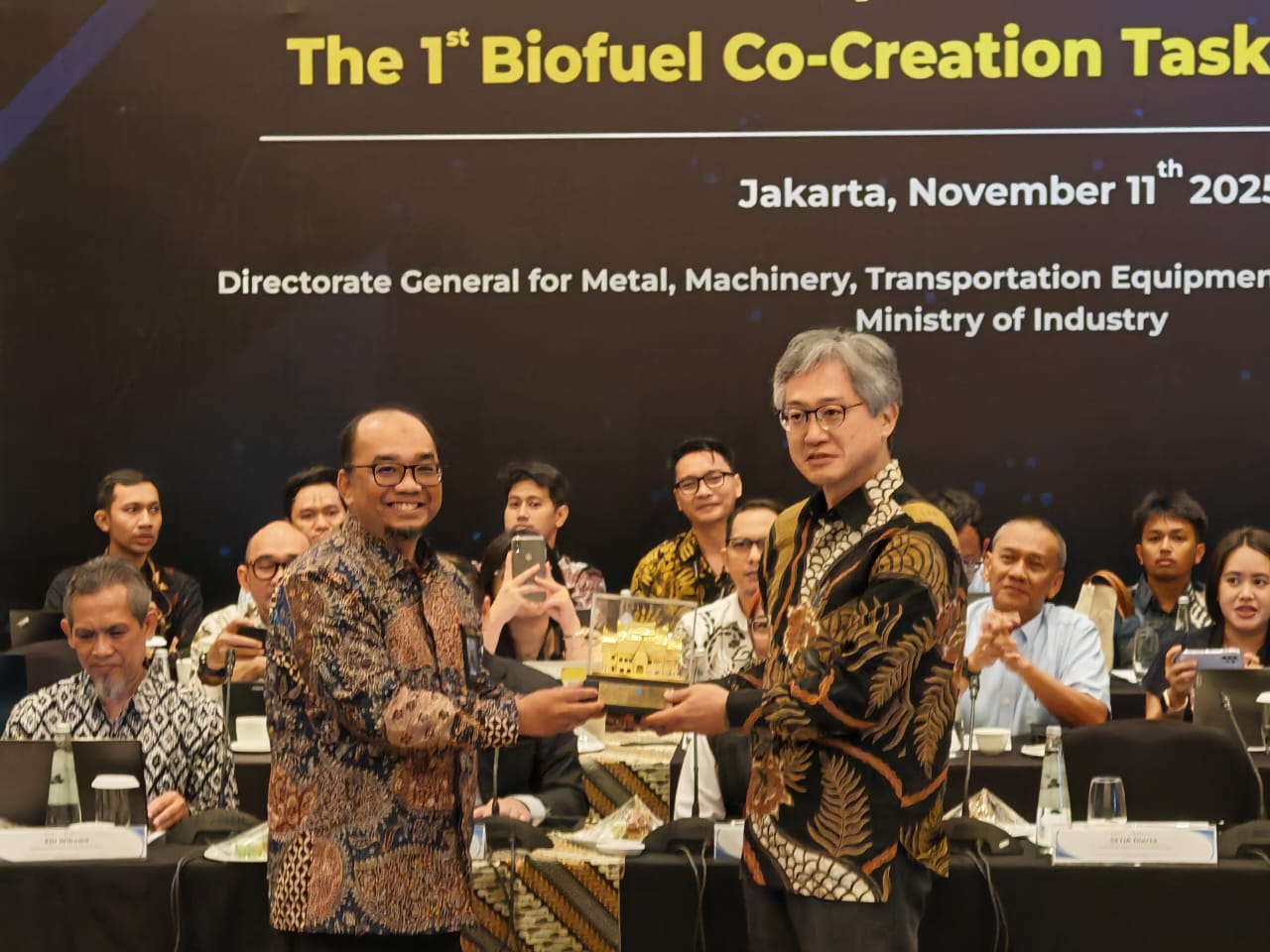The Indonesian Ministry of Industry (Kemenperin) is intensifying collaboration with international partners to accelerate the transformation of the national automotive sector toward a sustainable, globally competitive, and low-carbon future. This initiative reflects the government’s commitment to promoting low-emission mobility while strengthening domestic supply chains.
A key milestone in this partnership took place during The 6th Indonesia–Japan Automobile Dialogue and The 1st Biofuel Co-Creation Task Force Meeting, held in Jakarta on November 11, 2025. The forum served as a strategic platform to enhance bilateral cooperation on next-generation automotive technologies.
Government Commitment to Low-Emission Mobility
Minister of Industry Agus Gumiwang Kartasasmita expressed appreciation for the ongoing collaboration between Kemenperin and Japan’s Ministry of Economy, Trade and Industry (METI).
“We value this strategic forum as a reflection of our shared commitment to accelerate the transition toward low-carbon mobility through a multiple pathways approach, including the development of electrified vehicles and biofuels,” he said in Jakarta on Wednesday (11/12).
Director General of Metal, Machinery, Transportation, and Electronics Industries (ILMATE) Setia Diarta emphasized that the government continues to promote environmentally friendly alternative fuels.
“The government has a strong commitment to achieving Net Zero Emissions by 2060, supported by the Ministry of Industry through the Low Carbon Emission Vehicle (LCEV) program,” he stated.
The LCEV program encompasses a wide range of technologies, including flexible engines capable of using biofuels. Setia added that future initiatives are expected to create tangible impacts across the entire industrial value chain, promoting sustainable growth and shared prosperity.
Biofuel Programs and Energy Transition Synergy
Director General of New, Renewable Energy and Energy Conservation (EBTKE) Eniya Listiani Dewi underscored the need for cross-sectoral synergy in accelerating the adoption of clean energy.
“The government is currently implementing several biofuel programs such as biodiesel, bioethanol, bioavtur/SAF, and green diesel or hydrotreated vegetable oil (HVO),” she explained.
Eniya announced that the government targets E10 implementation by 2028, adding that successful execution requires full support from all stakeholders, particularly in strengthening supporting infrastructure.
Deputy for Basic Infrastructure Coordination at the Coordinating Ministry for Infrastructure and Regional Development, Rachmat Kaimuddin, stressed the importance of balancing energy security, economic growth, and environmental sustainability.
“We aim to eliminate energy imports. Currently, about 20–30% of Indonesia’s energy is imported, mostly oil for the transportation sector. With our target of 8% economic growth by 2030, maintaining fiscal sustainability is crucial,” he said.
Japan Highlights Indonesia’s Role in Regional Automotive Growth
From the Japanese side, Tanaka Kazushige, Director General of the Manufacturing Industries Bureau at METI, acknowledged Indonesia’s strategic role as a key production and export hub in Asia.
“We believe the combination of Indonesia’s bioenergy resources and Japan’s technological expertise will shape a brighter automotive future. This collaboration involves not only governments but also the private sector,” Tanaka noted.
The forum also discussed technical cooperation under the Biofuel Co-Creation Task Force involving METI, JAMA, and Indonesia’s Ministry of Energy and Mineral Resources (ESDM). The focus included testing and standardizing E10 and B50 fuels, and planning for ethanol and HVO production by 2027.
Representatives Keisuke Hosonuma (METI), Hitoshi Hayashi, and Yosuke Nomura (JAMA) highlighted Japan’s roadmap—E10 by 2030 and E20 by 2040—and emphasized the importance of collaboration among the Indonesian government, Pertamina, GAIKINDO, and JAMA to strengthen biofuel policy and accelerate the clean energy transition through a multiple pathways approach.
Industry Participation Reinforces Shared Vision
Representatives Edi Wibowo (ESDM) and Lies Aisyah (LEMIGAS) presented updates on Indonesia’s biofuel progress, including B40 implementation and B50 trials supported by the Cilacap and Plaju Green Refinery projects.
Industrial participation was also prominent, with PT Kilang Pertamina Internasional showcasing its Pertamina Renewable Diesel (HVO), and the Indonesian Spirit and Ethanol Producers Association (APSENDO) highlighting the potential of molasses as a key feedstock for domestic bioethanol production.
The dialogue was attended by multiple ministries, agencies, and industry associations from Indonesia, including the Coordinating Ministry for Economic Affairs, the Ministry of Transportation, BRIN, the Oil Palm Plantation Fund Management Agency, Pertamina, GAIKINDO, AISI, GIAMM, ITB experts, and the Technical Committee 27-04 on Liquid Bioenergy.
The event reinforced the deepening Indonesia–Japan automotive cooperation, supporting sustainable industrial growth and accelerating progress toward carbon neutrality.
PHOTO: KEMENPERIN
This article was created with AI assistance.
Read More






 Thursday, 26-02-26
Thursday, 26-02-26







